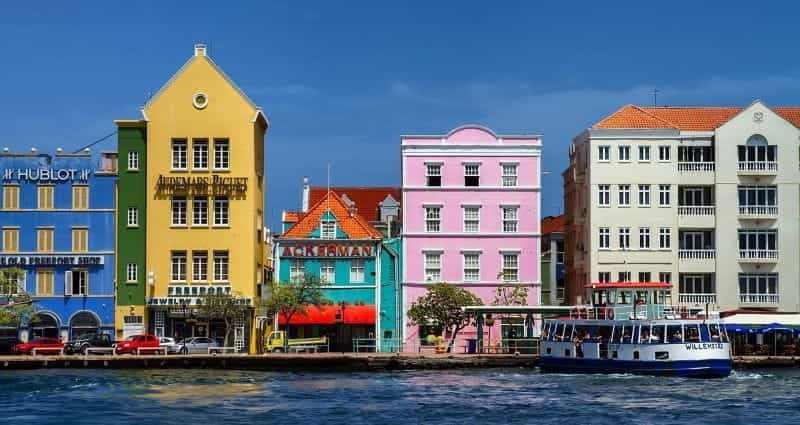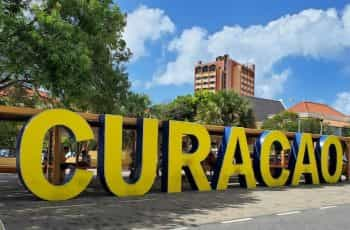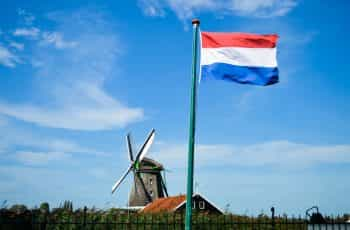KSA Raids Homes in Holland and Spain
The main gambling regulator in the Netherlands, the Kansspelautoriteit (KSA), has revealed that it recently conducted police raids on homes and properties in both Northern Holland and Spain as part of investigations into illegal gambling activity. The raids are part of enforcement actions against Curaçao-based operators which are suspected to be unlawfully targeting Dutch players.

In collaboration with the Dutch police, the main gambling regulator in the Netherlands, the Kansspelautoriteit (KSA), has conducted police raids on homes in both Northern Holland and Spain as part of investigations into illicit gambling activity. ©Patrice_Audet/Pixabay
Raids Targeted Properties in Velsen and Spain
Various properties in both Northern Holland and Spain have been raided by the Netherlands’ chief gambling authority the Kansspelautoriteit (KSA), following widespread investigations into illegal gambling activity.
In close collaboration with the Dutch police, a resident who holds properties in the Northern Dutch municipality of Velsen, as well as Spain, had their house raided as a result of being a suspect in the investigations, wherein evidence of illegal online gambling activities linked to two anonymous Curaçao-based businesses was seized.
Co-sanctioned and co-authorized by the Dutch Tax Authority, the raid was carried out on the house of a 56-year-old resident suspected of both money laundering and instigating unlicensed online gambling operations.
Two Curaçao-Based Companies also Being Probed by KSA
Dutch gambling authority Kansspelautoriteit (KSA)’s efforts on cracking down against unlicensed gambling do not end at these most recent raids in the Netherlands and Spain.
Additional research and investigations have been conducted into two companies based on the Dutch Caribbean Island of Curaçao. This is largely due to the suspect whose properties in the Netherlands and Spain were raided having links to two Curaçao-based businesses.
The suspect is subsequently under investigation for engaging in money laundering, as well as offering online gambling in the Netherlands without holding the proper license. Two luxury vehicles, money, jewelry and paperwork were seized as part of the raids on the suspect’s two properties.
The further probes into the gambling activities of the two Curaçao-based companies have been conducted by Netherlands’ Tax and Customs Administration. The operator known as Raging Rhino was hit with a penalty of €440,000, after the Kansspelautoriteit (KSA) revealed that its unlicensed LuckyDays.com domain was offering online casino services to Dutch consumers.
Particularly worrying for the KSA was that LuckyDays.com somehow managed to process over €18 million in player transactions between May and July 2020 while using the iDEAL payment processing platform, which is the Netherlands’ most prominent method of making online payments.
The discovery caused the Kansspelautoriteit (KSA) to force Dutch internet service providers (ISPs) to immediately block all access by Dutch IP addresses to Raging Rhino and all of its affiliated domains.
Investigation Supported by Agencies Collaborating Together
Supporting the Kansspelautoriteit (KSA)’s investigations into and subsequent raids against the Curaçao-linked illegal gambling suspect was a unique joint task force of various Dutch enforcement and intelligence agencies.
Under the direction of the Regional Information and Expertise Centre (RIEC) North Holland, the police, the Public Prosecution Service, the Tax Authorities, the Fiscal Information and Investigation Service (FIOD), the Gaming Authority and the municipality of Velsen combined forces to assist in the investigation.
The RIEC’s focus comes in the form of combatting what is referred to as “subversive crime, “ which it usually does by combining the expertise, specialties and resources of various diverse government agencies.
Expanding on the definition of “subversive crimes,” the Kansspelautoriteit (KSA) categorized such crimes as blurring the boundaries between the criminal underworld and mainstream society, wherein criminals set up businesses for their activities, apply for legal permits and even rent or outright purchase buildings and properties.
Maintaining such enterprises and “parallel worlds” requires the regular cooperation or complicity of society, such as estate agents and notaries, meaning that the two worlds therefore become intertwined, allowing criminals to exert pressure on the “upper world” and exploit it.
Curaçao-Licensed Virtual Coin Gaming Slapped with Fines
There is a notable precedent for the Kansspelautoriteit (KSA) targeting various Curaçao-based gambling operators, with the gambling authority having fined Virtual Coin Gaming with a hefty €500,000 (£450,000/$613,000) fine, in addition to another €100,000 penalty related to an individual involved with the provider.
Curacao-licensed operator was discovered to be offering illegal online games of chance which targeted specifically Dutch gamblers, conducted through the domains www.futgalaxy.nl and nl.futgamer.com.
Similar to the previously mentioned investigations into two other Curaçao-based businesses, Virtual Coin Gaming’s unauthorized targeting of Dutch players with gambling offerings used the Dutch payment system iDEAL.
Yet more pressing for the Kansspelautoriteit (KSA) was the growing concern that minors, or at least young adults, had taken part in games of chance, seeing as many of the games provided by Virtual Coin Gaming were based around FIFA Ultimate Team — a card game that comes featured as part of EA Sports’ best-selling FIFA video game franchise. This card game is banned in the Netherlands, as part of the country’s overall ban on online gambling.
KSA Revealed Licensing Process in November 2020
However, online gambling will not be banned for much longer in the Netherlands, with the much-anticipated launch of the Netherlands’ online gambling marketplace arriving soon on October 1st, 2021.
Following repeated delays, the Dutch Remote Gambling Act (KOA) finally came into force on April 1st, 2021, with the official opening of the iGaming market following six months later on October 1st.
In November 2020, the Kansspelautoriteit (KSA) revealed the licensing process for operators wishing to apply for and receive the proper licenses to allow them to offer gambling in the increasingly regulated and official Dutch gambling market.
Operators will be required to prove more to the KSA that they are worthy of the license by detailing measures they will take to avoid aggressively marketing their products and services, as well as outlining comprehensive addiction prevention policy measures.



